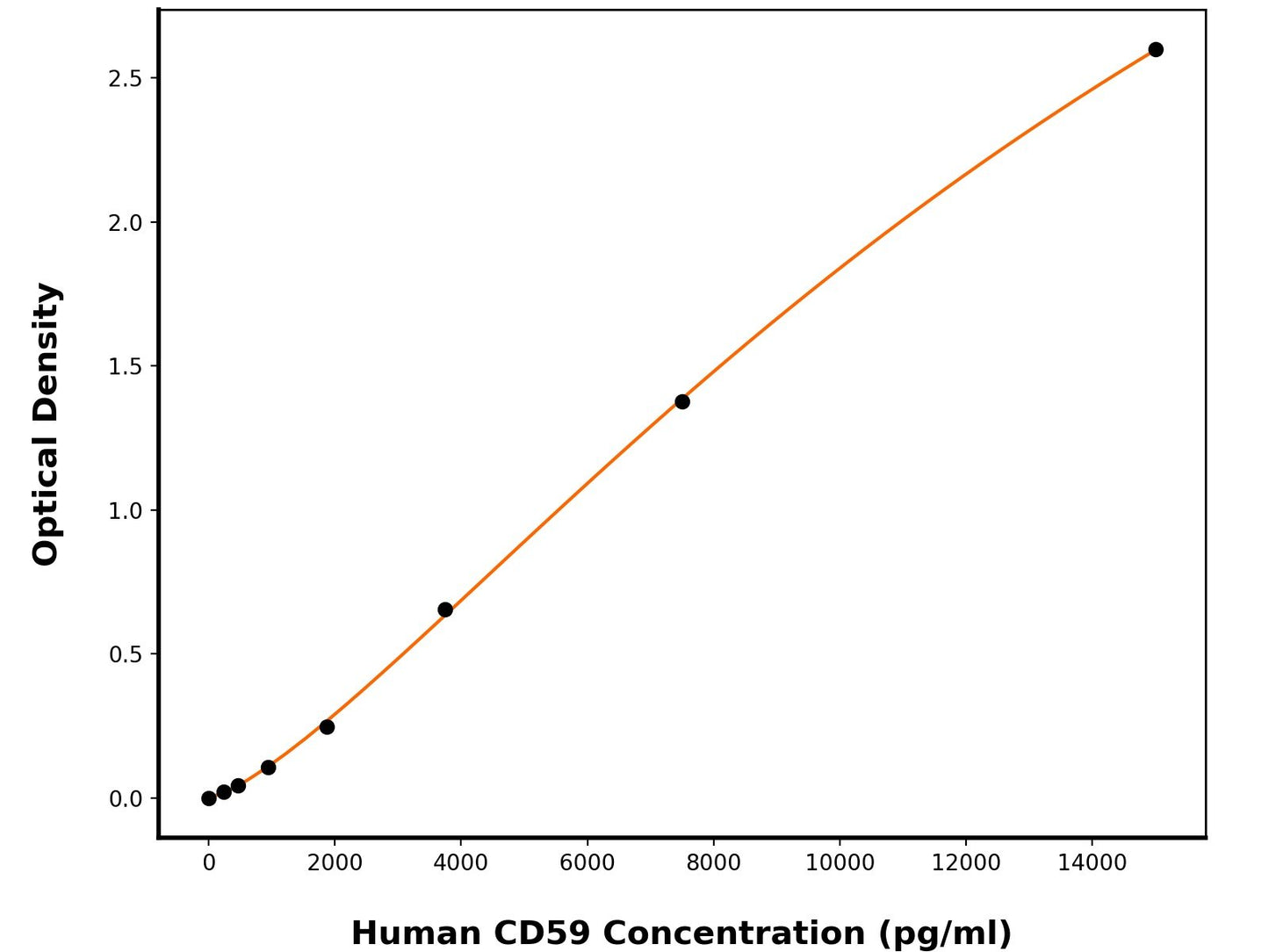1
/
of
1
Human CD59 Glycoprotein (CD59) ELISA Kit
Human CD59 Glycoprotein (CD59) ELISA Kit
This ELISA kit is designed to detect Human CD59 Glycoprotein (Human CD59). The assay plate has been pre-coated with mouse anti-Human CD59 monoclonal antibody. When the sample containing CD59 is added to the plate, it binds to the antibodies coated on the wells. Then, a horseradish peroxidase conjugated mouse anti-Human CD59 Antibody is added to the wells and binds to CD59 in the sample. After washing the wells, substrate solutions are added, and the color intensity is directly proportional to the amount of Human CD59 present. The reaction is stopped by adding an acidic stop solution, and the absorbance is measured at 450 nm.
Catalog No:
BPE254
Regular price
$754.00 USD
Regular price
$580.00 USD
Sale price
$754.00 USD
Unit price
/
per
2 weeks
Couldn't load pickup availability
Product Details
Species Reactivity
Human
Sensitivity
45.78 pg/mL
Detection Range
234.38-15000 pg/mL
Sample Type
Serum, plasma, cell culture supernates
Incubation(s)
3.5 hour(s)
Research Areas
Cardiovascular, Immunology, Signal Transduction, Stem cells
Background
CD59 glycoprotein, also known as 2 kDa homologous restriction factor, HRF2, MAC-inhibitory protein, Membrane attack complex inhibition factor, Membrane inhibitor of reactive lysis, MIC11, MIRL and CD59, is a cell membrane protein which contains one UPAR/Ly6 domain. CD59 is a small, highly glycosylated, GPI-linked protein, with a wide expression profile. The soluble form of CD59 from urine retains its specific complement binding activity, but exhibits greatly reduced ability to inhibit MAC assembly on cell membranes. CD59 is a potent inhibitor of the complement membrane attack complex (MAC) action. CD59 was first identified as a regulator of the terminal pathway of complement. It acts by binding to the C8 and/or C9 complements of the assembling MAC, thereby preventing incorporation of the multiple copies of C9 required for complete formation of the osmolytic pore. This inhibitor appears to be species-specific. CD59 is involved in signal transduction for T-cell activation complexed to a protein tyrosine kinase. Defects in CD59 are the cause of CD59 deficiency (CD59D).
Shipping Condition
Shipped on cold gel packs.
Storage Condition and Shelf Life
This product can be stored at 2-8C.
Analyte
CD59 glycoprotein
Regulatory Status
For Research Use Only

